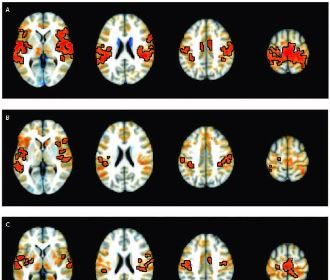Clinical Trial Links Frequent Anger to Increased Risk of Heart Disease

WASHINGTON — Recurring bouts of anger may increase a person’s risk of developing heart disease, according to a study published Wednesday in the Journal of the American Heart Association.
The study, which was funded by the National Heart, Lung, and Blood Institute, is the first to show that anger is directly linked to the impairment of blood vessel function, a precursor to the kind of long-term damage that can lead to heart attack and stroke.
“We’ve long suspected, based on observational studies, that anger can negatively affect the heart. This study in healthy adults helps fill a real knowledge gap and shows how this might occur,” said Laurie Friedman Donze, Ph.D., a psychologist and program officer in the clinical applications and prevention branch of the Institute.
“It also opens the door to promoting anger management interventions as a way to potentially help stave off heart disease, the leading cause of death in this country,” Donze’s written statement continued.
While a brief spurt of occasional anger is normal and generally has a benign impact on the heart, it is recurring or frequent anger the researchers said raises concern.
“If you’re a person who gets angry all the time, you’re having chronic injuries to your blood vessels,” said study leader Dr. Daichi Shimbo, a cardiologist at Columbia University Irving Medical Center in New York City.
“It’s these chronic injuries over time that may eventually cause irreversible effects on vascular health and eventually increase your heart disease risk,” Shimbo said.
For the randomized, controlled study, researchers recruited 280 healthy adults aged 18 to 73 years within the New York City area.
The participants were free of cardiovascular disease and without risk factors such as history of hypertension, diabetes and lipid imbalances, according to self-reported survey data. All participants were non-smokers, medication-free, and without a history of diagnosed mood disorders.
The researchers measured blood flow changes in the blood vessels of each participant’s dominant arm. They then randomly assigned each to a task to elicit either anger, anxiety, sadness, or a neutral emotional state.
They then asked the participants in the anger and anxiety groups to talk for eight minutes about personal experiences that had evoked those emotions. Those in the sadness group read aloud for eight minutes a series of brief statements designed to elicit sadness. The control group counted numbers out loud for eight minutes to induce an emotionally neutral state. When each group was done, researchers measured blood vessel changes again — immediately at the end of the task, and after 3, 40, 70, and 100 minutes.
The researchers found that the ability of the blood vessels to dilate was significantly reduced among participants in the anger group compared to those in the control group.
This vessel impairment was sustained up to 40 minutes after the initial recall event that triggered the anger and decreased afterward. In contrast, the blood vessels of those in the anxiety and sadness groups were not affected.
Prior studies have shown that impaired blood vessel dilation is a precursor to the development of atherosclerosis — the buildup of fatty deposits inside the vessel walls — which in turn can lead to heart disease, including heart attack and stroke.
The reasons anger negatively affected blood vessel function are unclear and the study was not designed to evaluate those mechanisms.
However, Shimbo said in an NIH press release that several factors could be at play, including activation of the autonomic nervous system, changes caused by stress hormones and increased arterial inflammation.
He went on to say the endothelium — the inner lining of the blood vessels, which is known to control dilation of the blood vessels themselves — is likely involved in some way, too. The researchers plan to explore these possible mechanisms in future studies.
Dan can be reached at [email protected] and at https://twitter.com/DanMcCue
























